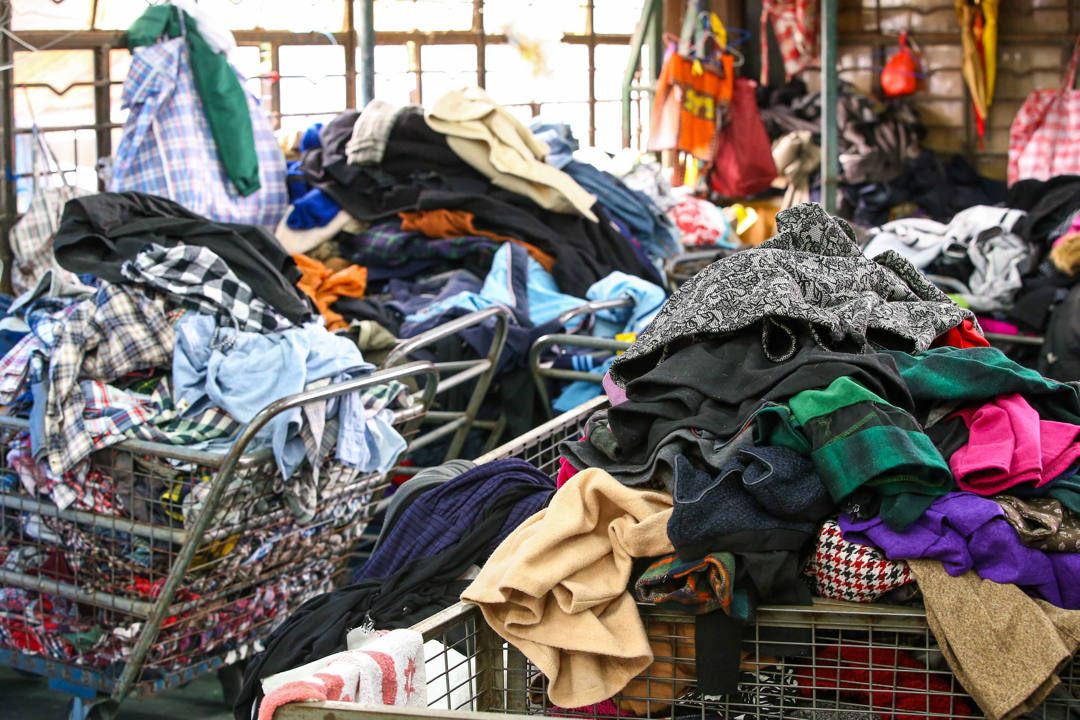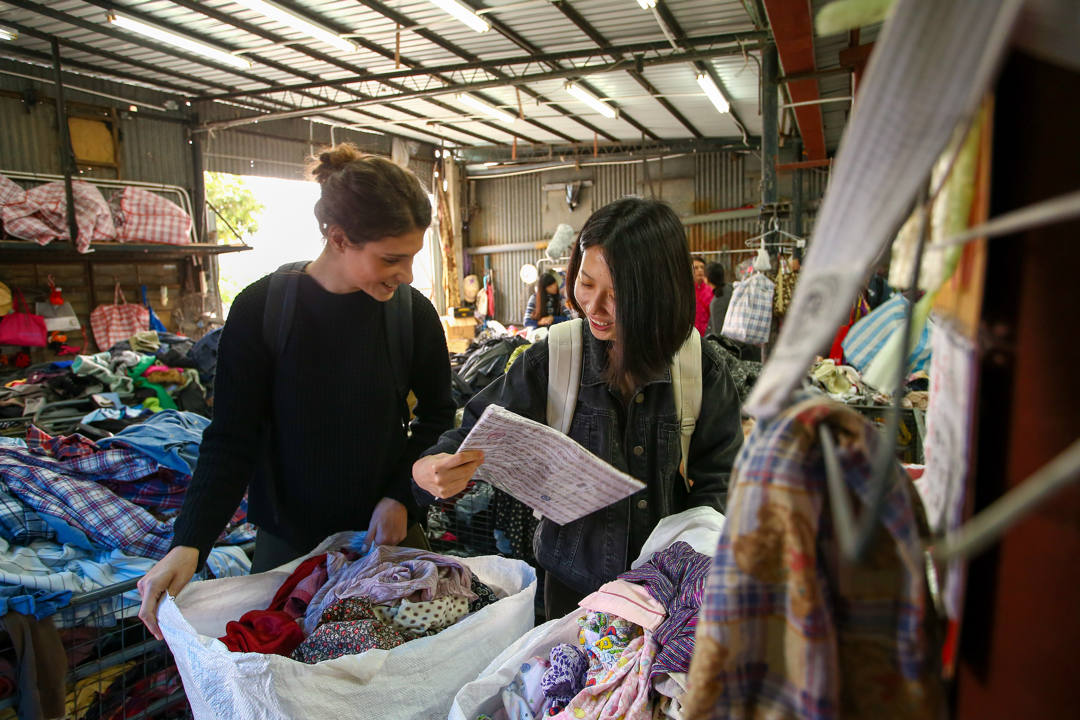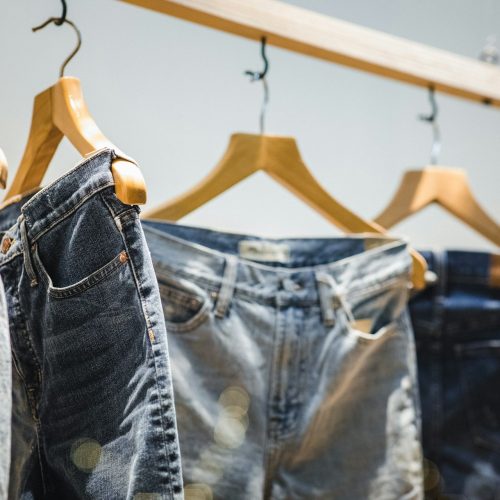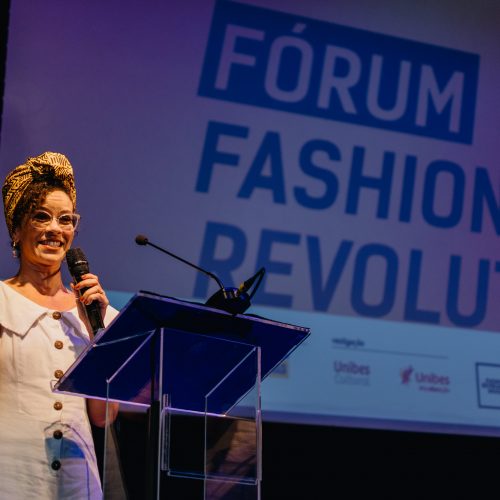Christina Dean and the importance of Zero Waste
Oh yes, the past can hurt. But you can either run from it, or learn from it. This is one of our favourite sentences from the film The Lion King. The past of the fashion industry is hurting us, our planet, but there is hope out there. There are people working hard to reach a better future. Among them, Christina Dean. In 2013, every day, from January to December, Christina wore secondhand clothes, working with 12 fashion stylists, their sustainable style-kits and a huge dose of fashion activism to put secondhand clothes on the fashion frontline. The challenge was split into 12 monthly sustainable fashion themes, including capsule wardrobe, durability, repair, DIY, sustainable laundry care in order to showcase 365 inspiring ways to keep clothing waste out of landfill and in the fashion loop. The experiment, named the 365 Challenge, provided consumers with tricks and techniques to prolong their clothing’s lifespan in order to avoid landfilling functional and fashionable clothes.
Reduce waste in the fashion industry
And that is what she is still doing in Redress, an environmental NGO founded in 2007 to reduce waste in the fashion industry.
Voted one of the UK Vogue’s Top 30 Inspirational Women, Christina Dean delivers the Redress message to the world through talks, seminars, thought-leadership pieces and documentaries. The indefatigable ex-dentist and journalist consistently drives the organisation towards inspiring positive environmental change in the world’s second most polluting industry.
We interview her. Did you know that the fashion and textile industry is the world’s 2nd biggest polluter, behind oil? Or that textiles are the 2nd biggest polluter of clean water, behind agriculture? Despite that textiles are almost 100% recyclable, fashion still leaves behind piles of waste. China alone generates 26 million tonnes of textile waste every year; that’s equivalent to 11,400 buses filled to the brim with textile waste every day. Christina opens our eyes to the positive impact.
Tell us the story of Redress and the EcoChic Design Award. How did you come up with the idea of creating them and how has been the journey till today?
Well, soon after becoming a journalist, I moved to Hong Kong with my husband and kids. I worked as a journalist for a couple of years. I used to write about issues around health, poverty, human rights, environment… I loved to travel and I started to be impressed about how polluted China was. So I setted up Redress in 2016 as a passion Project. My whole life started to change. I did not have an idea about how the fashion industry was, I was very naive.
How can a “normal single person” create such a big movement alone?
You can call my lucky or unlucky, but basically I just saw the problem because I was a journalist very early on. I was on the frontline of what was going on and that is how I started to understand it. You know, when you go surfing, if you get on the wave at the right time, it works. And I think that is what really happened with Redress.
And that is why I thought it was important to launch EcoChic Design Award, because the best way to make changes is to educate the next leaders and that is what we do with the this Award.


Which difficulties have you faced in order to implement these projects?
What has changed in the last 10 years is massive. We are based in Asia and I have been working in a very asian context. Doing everything in China is very difficult, we don’t have the same communication channels, for instante. I am moving back to UK, slowly, slowly… But, you know? I thought to myself that Europe would be thousand miles ahead, in activity, in leadership… And actually, I am a bit disappointed, there is not enought going on.
Is it possible that EcoChic and Redress moves to UK?
No, our team is based in Hong Kong. We would love to have a “sister” in Europe. The problem is that we can not affort it. We do not have budget for that. It is really hard work. What we need is millions…
How many people are working in Redress and EcoChic Design Award nowadays?
We are nine people. We have a lot of volunteers and interns, bu if we speak about very full time dedicated people, we are only nine.
Which, so far, has been the most gratifying achievement or practical result since the creation of Reddress? And with EcoChic Design Award?
Well, to reduce waste in the fashion industry makes sense for everyone that is not an absolut idiot. It is so obvious! It is beneficial to the brand, to the environment, to the economy, to the consumers… But, actually, getting people to change is not that easy, particulary when we speak about the clothes. People are very selfish and they pretty much want to look good, and they don’t have a lot of time to compare… So, it is difficult. If you look at the young population in the emerging markets, for instance, they are not thinking about ethic or environment. That means we have a huge way the lead them, fascinating them. What is good is that every day people is more aware about the human impact in the environment, people start to be active…
In terms of the industry, I feel it is changing: they are searching new materials because they know producing waste is not going to help their Business. But, there is not enough. The fast fashion brands just want to sell, sell, sell, reach new people who needs clothes.
CEO’s are not thinking about the green Earth, but they are thinking about increasing their Business in a sustainable way.
There is an interesting report called Pulse, presented during last Copenhagen Fashion Summit. It informs many fashion Brands are aware of their impact and ready to engage further, however over 50% of the industry has not started to take action yet. It looks at the companies that are more sustainable. Big fast fashion companies are working hard on sustainability. Zara and H&M are high in the ranking: they are making a great positive change, reducing convencional cotton use, increasing renewable energy use, increasing transparency on Chemicals usage… We have to be aware about new unregulated Fast fashion brands that are getting famous, they are the main problem nowadays.
What about the luxury labels?
Luxury Brands have the responsability and the opportunity to make things change. During almost 10 years we have given this message. At least, there has been some progress. Hermès, Kering Group… Consumers are starting to demand an honest fashion, and the labels have to give them what they want.

Trends in Zero Waste
Coming back again to EcoChic Fashion Awards, one of the main goals of this prize is inspiring emerging fashion designers and students to create mainstream clothing with minimal textile waste. Maybe you can tell us the new trends or technologies you are teaching at this moment.
At the beginning we were really Basic. The most of the young Designers are very young. We were teaching about three main directions to reduce waste: renovate, upcycling and deconstruction. Now, we start to teach about manufacturing, chemistry… In our website we have videos about all that.
Where can we buy the clothes of the winners?
After years thinking about how can we make a change, my colleague Michelle Bang, the one who founded Redress with me, and I founded a label called BYT. It is an extension of Redress, it has the same mision, values, aspirations… BYT is our upcycled, socially sustainable fashion brand and social impact Business. Next September, BYT e-shop will come online, offering affordable luxury, high quality products, to all sustainable fashion fans.
Now, BYT proudly represents Hong Kong in the global finals of the Chivas Venture, the social impact venture competition in which almost 3,000 passionate start ups apply to but only 30 of the best make it through. BYT is now competing for a share of US$250,000 prize money through public voting – and we need your help to win critical funding so that we can make a difference.
Redress says EcoChic Design Award is the world’s largest sustainable fashion design competition. What do you think about new competions that has been launched recently, such as the world’s first Green Carpet Fashion Awards, Italia 2017, which are built on sustainable values?
As I understand it is a competition very focused on Italian designers and the Italian fashion industry. It is a fantastic iniciative. I love the way they put together luxury brands and emerging Designers, but it is very much focused on Italy. If you look at EcoChic Design Award, we have Designers from 46 countries all over the World, from Hong Kong to USA. So if you look at these competitions they are very different: one is focused on the italian luxury and emerging Designers and the other (Ecochic) is a very global Award.
To finish our interview, do you think that the movement for a more ethical and eco fashion industry is gathering momentum? Have you noticed a growing interest?
There are some much research out there. Most of them shows there has been an important evolution on this regard. Increased demand from consumers is working – more brands than ever are sharing policies and commitments – but with an estimated 150 billion items of clothing delivered out of factories annually worldwide, there is a long way to go before we truly know who made our clothes.
The State of Fashion Industry 2017, published by Business of Fashion, says that more than 65% of emerging market consumers actively seek sustainable fashion versus 32% or less in mature markets. That is a very nice news.




